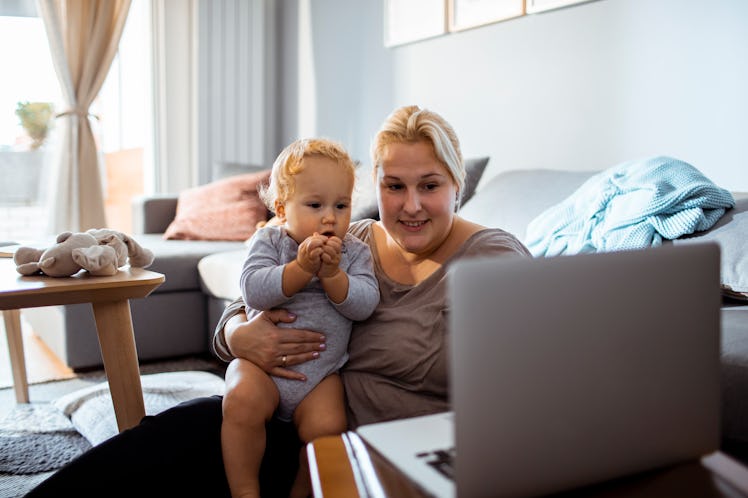Baby Learning Videos Don’t Benefit Your Baby’s Brain
The clips you play to pacify your kid aren't for them. They're for you.

It’s not so harmful for parents to show baby learning videos to their toddlers, but it is officially foolish to think they’ll learn anything from the experience. Because even if babies seem to be engaging with the characters on the screen, a new study shows that they aren’t really absorbing anything developmentally beneficial from YouTube.
“Children up to two years of age could be entertained and kept busy by showing them YouTube clips on smartphones,” according to the study, “but did not learn anything from the videos.”
That’s not to say toddlers don’t understand how videos work. Prior studies have shown that infants as young as 9 months can distinguish between video and real life.
And, throughout different stages of development, their interest in what’s on the screen depends a lot on how much their parents are hooked to Netflix. How long toddlers under 2 watch a video depends on how long their parents watch it. But despite the many claims of “educational” media, there is limited evidence that children can even learn new words from television — much less other skills.
But research on whether kids can learn anything from baby learning videos on YouTube, now far more pervasive than television, remained scant. So the researchers recruited a small sample of 55 6-month-olds living in India and kept tabs on their behaviors and visited their homes regularly until they were 2 years old. During visits, the children were asked to identify themselves and other family members in videos, as well as familiar characters they did not know in real life. Researchers also asked children which videos they preferred, and tested their overall digital literacy.
At 6 months, the babies were attracted to videos with music but couldn’t identify much else. At 12 months, they could pick out their parents in videos, and at 18 months they started to touch buttons on their parents’ smartphones in an attempt to engage with the videos. By 24 months, toddlers were thoroughly entertained by YouTube videos, but in unexpected ways. On the rare occasion that kids learned new words, it was only because parents were interacting with the videos alongside them. They preferred commercials that featured their favorite products (chocolate, diapers) to actual media, and choose videos with real people over cartoons. The study concluded that, although YouTube exposure didn’t seem to harm the kids, they weren’t gaining any skills of note.
It’s important to note that the scope of the data may be limited to a relatively small sample of children from a higher socioeconomic status. But although the results need to be replicated with kids from different cultures and more diverse economic backgrounds before jumping to any concrete conclusions, it’s safe to say your kids are watching YouTube videos for your mental benefit, not theirs. But that’s important too.
“Parents and other adults often play YouTube videos on their smartphones and lend them to children, typically for up to five minutes,” according to the study. And that’s about the only five minutes you’ll have to yourself some days. Cherish it. Just don’t expect your kid to learn anything during your downtime. Parenting is never that easy.
This article was originally published on